Richard Dawkins’ Reticence
Never be afraid of stridency. This was the title of the last ever interview with Christopher Hitchens. It came from advice he gave to Richard Dawkins, his interviewer and guest editor of the New Statesman where it was published in December 2011.
CH: You must never be afraid of that charge [of being a bore], any more than stridency.
RD: I will remember that.
CH: If I was strident, it doesn’t matter – I was a jobbing hack, I bang my drum. You have a discipline in which you are very distinguished. You’ve educated a lot of people; nobody denies that, not even your worst enemies. You see your discipline being attacked and defamed and attempts made to drive it out. Stridency is the least you should muster . . .
In the following eleven years or so, Dawkins certainly lived up to Hitchens’ challenge. That is, until recently, in his own interview with Piers Morgan, where he appeared decidedly more reticent than strident.
This is not to say he has become agnostic, or anything of the sort, but rather that he seemed strangely unwilling to display the full strength of his arguments against bad logic, or even sometimes to express an argument at all.
At the start of the interview, for example, when Morgan pressed him on the Big Bang theory, asserting that a ‘super-being-power’ must have preceded it, the strongest response from Dawkins was to defer to physicists who would say that it was naive, or that ‘science starts with simplicity’.
Of course this was partly humility of discipline, but far more than we’re used to. The overall effect was to make Morgan’s contention seem plausible and Dawkins happily resigned. Only a few years ago one would have expected him to incisively dismantle, as he did in his bestselling book The God Delusion, this notion of infinite regress. (If God created the universe, who created God?)
It was as if, after being introduced with the usual sensational epithets: firebrand, controversialist, incendiary, offensive – and later according to Morgan, vehement – he was doing his best to disprove them by being overly passive. Or perhaps he really had changed.
Sensing this possibility, Morgan eventually asked: ‘Have you got milder about this as you’ve got older?’
‘Yes’, replied Dawkins.
To anyone who has followed his work long enough, this is a surprising enough admittance. He was already 65 when he published The God Delusion in 2006. And even those who came to him late will know that one of his hallmarks is to make bald statements of fact on sensitive subjects, if just to inspire debate. Many would inevitably get him wrong in the process, but to Dawkins free speech was always a theory to be defended through practice.
This is what made it so shocking when he point-blank refused to comment on the case of Shamima Begum.
Morgan: ‘There’s been a big debate about this ISIS bride, Shamima Begum – whether she should be allowed to come back to this country. Do you have a view about that?’
Dawkins: ‘I’d rather not say.’
His reluctance to discuss the issue is difficult to comprehend given his erstwhile tireless opposition to theocratic statism, of which ISIS was by its own definition the exemplar.
It is even more difficult when one remembers that he was outspoken on the Begum question specifically, as far back as 2019. In response to a BBC article which referenced a previous interview with her, he tweeted:
This, one might say, is quite strident. In which case, why did he feel unable to be similar with Morgan, to robustly convey his thoughts and afterwards qualify them according to the nuances of the case? He is surely more informed than most people on the matter, many of whom are less willing to make concessions than even he was four years ago. And yet instead he further excused himself from the debate saying he ‘hasn’t studied it enough’.
‘There are areas which you would prefer not to discuss?’ Morgan went on to ask.
‘Yes. I should have said that before we started.’
This was another troubling statement. But what made the moment more so in general was Dawkins’ demeanour, which had shifted from playful to withdrawn, to the point where he barely voiced his monosyllabic demurrals. Eventually, even Piers Morgan, clearly nonplussed at having avoided the fireworks promised by his intro, felt it appropriate to move to another line of questioning.
As a great admirer of Dawkins, it is disappointing to see that he no longer feels comfortable expressing an opinion on certain topics, especially when it is called upon and in a conducive environment. Indeed, at the very start of the interview on Piers Morgan Uncensored, the host put the programme’s premise direct to the interviewee:
‘I assume you will be uncensored?’ To which Dawkins replied, ‘Of course.’
Overriding this disappointment, however, is uncondescending sympathy. It cannot have been easy to be ‘the face’ of New Atheism in the age of new extremism and the incessant threat that comes with it. Nor to have survived long enough to see the actuation of this threat against friends no less, as in the case of Salman Rushdie (as far as someone in hiding across thirty years can have friends).
Further still, he has been let down immensely by those who should have stood by him, most notably the American Humanist Association who, in 2021, withdrew the award they had given him after he pointed out inconsistencies between transgender and transracial rhetoric.
That he, at 82, is still engaged in such debates at all is testament to his enduring commitment to truth and reason. But by the same measure, he is an increasingly lonely voice, among the last of a generation of rigorous thinkers who have either fallen away around him or been forcibly removed from public life. It is only natural that his thoughts would turn to the legacy of his prolific output, which, as he reminds us, contains only two books about religion. He has much more left to defend.
As Hitchens went on to say in 2011: ‘It’s the shame of your colleagues that they don’t form ranks and say, “Listen, we’re going to defend our colleagues from these appalling and obfuscating elements.”’
More than a decade on, Professor Dawkins is still waiting.


 (@GSpellchecker)
(@GSpellchecker) 
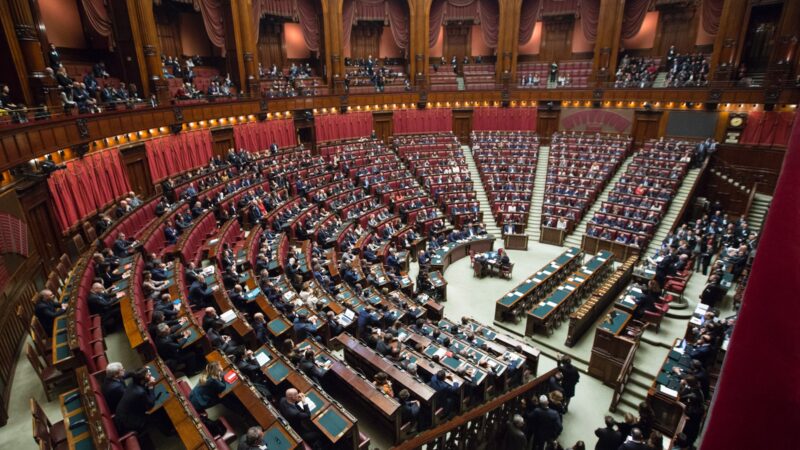
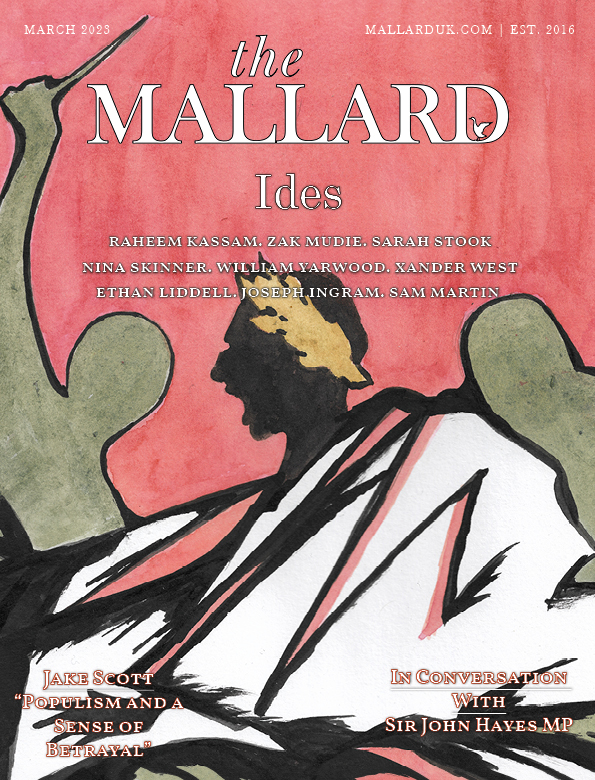


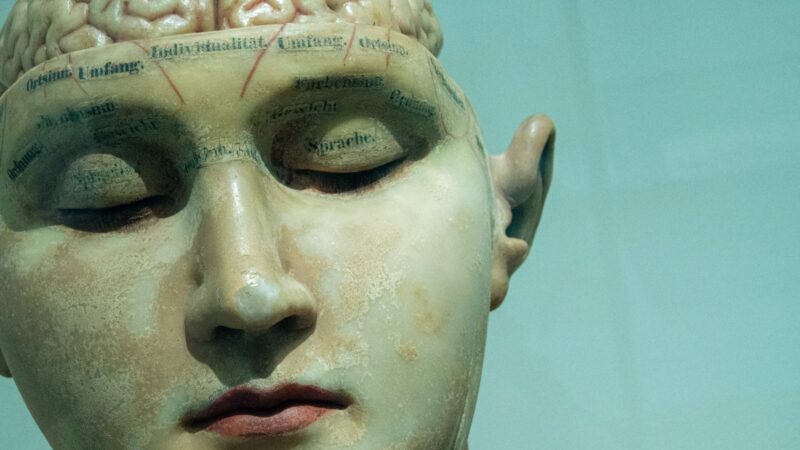
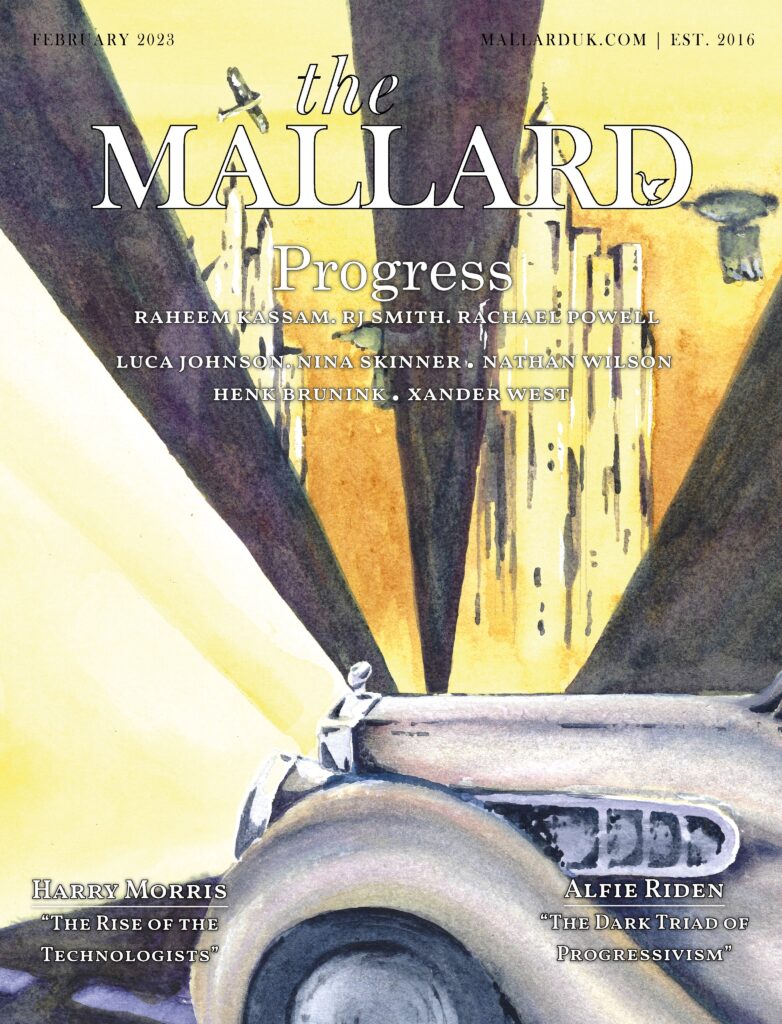
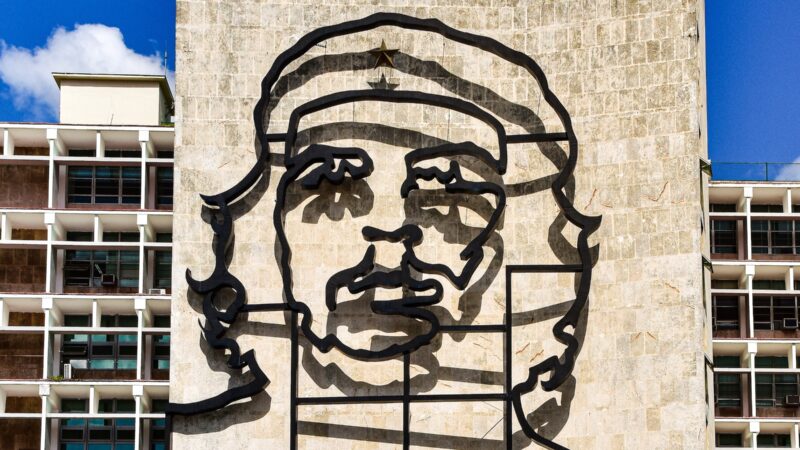


The National Scandal That Never Was
In undoubtedly one of the most important and disturbing watches this year, the GB News documentary Grooming Gangs: Britain’s Shame is perhaps the best examination of this ongoing (and sadly ever-widening) scourge on Britain as a nation. The amount of detail and research Charlie Peters goes into is commendable, simultaneously making the matter horrifying and frustrating, given how little was done to tackle it up until the last decade.
It’s not simply the individual accounts of grooming victims that make it such an uncomfortable watch, nor the vast scale of the scandal that Peters exposes. Rather, it’s the clear institutional failings that occurred, as well as the Soviet-level attempted cover-up by the authorities, including intimidation campaigns against those trying to tell the truth.
It ends with an overall call to action for the government to take this matter more seriously and have more of those involved in the cover-up to be held to account.
Peters’ excellent work is one of several noticeable examples of mainstream culture attempting to shed some more light on the scandal, with others including the equally harrowing BAFTA-winning BBC drama Three Girls and an episode of the Denise Walsh true crime series Survivors where prominent victim Sammy Woodhouse gave an extensive interview on her own tragic story.
However, such contributions are noticeable in how few and far between they actually are. This, in turn, highlights a sinister truth about the scandal as a whole: despite how much of a major problem it was, and continues to be, it never quite gained the status of ‘national scandal’ it truly deserved.
The fact it hasn’t had such an impact is very troubling and should highlight how legitimately broken our current system is, politically and institutionally.
But before that, it’s worth examining a brief history of this scandal.
For several decades now, tens of thousands of young, mostly white girls, have been targeted in numerous towns and cities across the UK by gangs (generally of British Pakistani origin) for grooming, sex and rape.
Such girls would be coerced by various means – offers of drugs and alcohol, psychological manipulation, fake affection – by these gangs, and would later be abused.
Sometimes, those in positions of authority were also accused of engaging in such behaviour themselves, including Labour peer Lord Nazir Ahmed, who was (ironically enough) lauded for a speech condemning it.
To make matters much worse, such crimes were often ignored for decades by the authorities, from the local councils, to the police to the social services. It was later discovered that fears of being called ‘racist’ and ‘politically incorrect’ and ‘undermining community cohesion’ were given as justifications for to the ‘see no evil’ attitude of those in charge, because of the race dynamics of those involved (not least of which the victims themselves, often berated for being white by the preparators).
In a post-MacPherson Inquiry Britain (of which had questionably accused the Metropolitan Police of being ‘institutionally racist’ following their bungled investigation of Stephen Lawrence’s murder), fears around that sort of accusation lingered among many police forces – leading to the direct racist abuse of many white, Sikh and Hindu girls in the process.
Later on, Dan Hodges described those failed in Rotherham as those failed because of crying ‘racism’, as “[Rotherham Council] were standing back because the victims were white and the rapists were not.”
The scandal would remain an open secret for many years, whether it be the working-class mumbling in hushed tones about it or less-than-palatable political alternatives captalising on the problem to gain local support.
This would change in 2012 when Times journalist Andrew Norfolk blew the whistle, following extensive research and corroboration with the likes of Woodhouse. This, alongside further exposure in other areas of the country, brave individuals like Maggie Oliver openly highlighted the matter, further helping it into the mainstream.
How extensive this was and how far back this goes will probably never be known. In terms of time alone, there is much circumstantial evidence. The Sunday Mirror found that the Telford abuse goes back as far as the late 1970s and early 1980s. A Rotherham Advertiser article documented such abuse as far back as 1975. A memoir titled Call The Midwife dates the scandal even further back to 1950s London. During a 2021 Parliamentary debate on grooming, Rotherham’s Labour MP Sarah Champion noted that she had met victims who were 70 years old.
To make matters even bleaker, it seems that there are further revelations still to unfold – as one of the lawyers who helped to prosecute the Telford gangs stated, such matters in the town were simply the ‘tip of the iceberg’ for what was to come.
So if all of this is true, then why is it a scandal that has (once again) gone under the radar, kept on the down-low and sidelined to ‘dissident right’ Telegram chats?
There are several reasons for this, and none of them are good, shockingly enough.
Firstly, the ‘racism’ and ‘far-right’ stings and smears that made many turn away initially are still prevalent when discussing this stuff. Norfolk himself was worried about investigating the story initially when first hearing of it, stating in 2015 that his ‘liberal angst’ about the issue being a ‘dream story for the far-right’ made him nervous about tackling it.
Although such worries were somewhat justified, his reporting was originally dismissed by Rotherham Council as lies of the ‘[Rupert] Murdoch press’. Needless to say, if such concerns could make the likes of Norfolk (a hero in this story by all counts) nervous to start with, then why would anyone else senior want that to be their hill that they died on?
In 2015, when Nigel Farage as UKIP leader travelled to Rotherham to speak on the issue, there was a significant protest – but it wasn’t the gangs they had in their crosshairs. Instead, much hatred was directed against Farage for in part spreading ‘racism’.
Champion herself when calling out these problems in her constituency area in a hard-hitting 2017 Sun article received similar attacks. Beyond the death threats and deselection attempts, she was also criticized for being racist by MP Naz Shah (infamous for retweeting a parody account stating that the grooming victims should ‘shut their mouths for the good of diversity’) and her local Labour Party.
Meanwhile, Peters’ doc itself was targeted on similar grounds with University College London professor Ella Cockbain sending a complaint to Ofcom on the matter, as it promoted ‘racist tropes’ about ‘Pakistani men’ (thankfully to widespread backlash online as a result).
In short, if far-left campaign groups, certain trade unions, much of the Labour Party and academics among many others with ‘privileged’ status are still willing to shut down this debate with racism smears, why would those with much to lose campaign against it?
This highlights the second major reason as to why this never became a national scandal: it didn’t serve the interests of the political establishment at large (not least of which those involved in the original cover up, alongside specific councillors who made horrid remarks on it).
Writer Derek Turner once described political correctness as a ‘clown with a knife’, highlighting its funny aspects of which conceal its sinister totalitarian aims. The grooming gang scandal, alongside the infrequent spats of Islamic terrorism, are the most obvious times of such an idea playing out in such a fashion.
When the political establishment has their eggs in the baskets of political correctness, multiculturalism and mass immigration – policies and ideas of which the proliferation of grooming gangs couldn’t have happened without – why would they seriously want to tackle such a subject matter head on and deal with it?
Instead, they focus on supposed scandals that confirm their prejudices. When the grooming gang scandal was taking off in the mid-2010s, a completely made-up non-scandal was entertaining the eyes and ears of Westminster – that of the VIP pedophile ring alleged by fantasist Carl Beech. Senior MPs gave it Parliamentary space, LBC host James O’Brien gave it copious amounts of attention and many at the Met Police felt that Beech (under his pseudonym ‘Nick’) was ‘credible’. It went as far as then-Prime Minister David Cameron getting involved, with Douglas Murray describing how it created a ‘witch-hunt’ atmosphere in Parliament. Beech was found out later to be a fraud – sadly not before some were made homeless because of his claims and others died before their vindication.
It is easy to see why much of the Westminster bubble was so eager to give it attention, but not the grooming gangs. The Beech affair targeted the old British establishment they despised for their part in a traditional Britain ‘out-of-sync’ with the secular one of the current year they love (and have benefited greatly from).
Persecuting World War 2 generals like Lord Bramall and former MI5 heads, alongside the Tory old guard of Edward Heath and Harvey Proctor was very easy under this mentality. When the crimes and suspects involved violate the principles of secular Britain that becomes much harder to do.
As such, it isn’t surprising that the grooming gang scandal isn’t much use for the establishment at large. This is something blatantly seen with the generally scant media coverage it receives in comparison to other tragedies.
In Manufacturing Consent, Edward S. Herman and Noam Chomsky highlight the various ways in which the media manipulate events and frame stories in a way to set an agenda. This includes the notion of ‘Worthy and Unworthy Victims’, whereby the media will ‘portray people abused in enemy states as worthy victims, whereas those treated with equal and greater severity by their own government… as unworthy.’
Such an idea can be recontextualised in regards to how the media at large covers certain bleak stories, whether in Britain or abroad. For instance, the Grenfell Tower fire in 2017 was given much coverage in the half-decade since the disaster, and rightly so. One would hope this extended to the ramifications of such an event. It was, but not in the way one would think.
Instead of talk surrounding corporate negligence and the neo-feudal implications of the inherent setup, the discussions surrounding Grenfell consisted of how the government had failed the seemingly benevolent ideas of multiculturalism and diversity due to the building’s high-foreign born population, all the while blaming the Tories’ austerity supposedly causing the matter to occur (a blame shared by more than just one political party, it turned out).
In all, brave firemen were more likely to be criticised for the incident than those who built it in such poor conditions, despite endless complaints from the residents about it. Grenfell could therefore be cynically pushed in a way that celebrated diversity and mass immigration, making its victims worthy ones. The grooming gang scandal meanwhile does the complete opposite, hence its victims are unworthy, for the reasons explained earlier. Hence why there was a Question Time episode set in Kensington for the Grenfell anniversary, but none for the grooming gang hotspots.
One can only then, in response, protest. Why can’t we all share in these tragedies together? Why does politicking and ideology have any part of such quandaries? Can we not move beyond politics, sacred cows and petty point scoring to grieve, share anger and unite in such times of darkness? Unfortunately it seems that no, we cannot.
It is for that reason, alongside not being recognised as a national scandal, that in some areas, the problem has only worsened since its exposure a decade ago – not least of which is the fact that Rotherham is still a hotspot for this very crime.
The liberal-left establishment have at best sought to further minimize and downplay it, and at worst once again outright deny it’s a problem. In a particularly blunt instance of anarcho-tyranny in late 2022, one victim (Samantha Smith) was investigated by West Mercia Police for discussing her abuse on GB News.
This vapid ignorance was no better displayed than the reaction by polite society to the 2020 whitewashed Home Office report into the matter. The vested interests wanting the story to go away treated it like gospel, including one Guardian writer who exclaimed that it ‘dispel[ed] myth of ‘Asian grooming gangs’ popularised by far right’.
The fact that some of its contributors were displeased at the report and it left out several key witnesses (like initial whistleblower former Labour MP Ann Cryer and the Quilliam Foundation) didn’t matter. Meanwhile, the recent exposure of the fakery of Eleanor Williams was certainly given far more coverage than something like Telford.
Such attitudes permeate other high places as well from so-called ‘comedians’ who try to make disgusting light of it as well as former respected journalists playing ‘whataboutism’ when confronted with the issue. Other institutions, like the BBC will conduct hit pieces against you if you highlight the matter further.
However, despite all this, there is reason to be hopeful.
Although not treated with the severity it deserves, the matter is at least public knowledge now, and can be dealt with accordingly. The 2017 arrests in Newcastle that were pre-emptive against such gangs (alongside many others in recent years) shows that the police in some areas are getting mildly better at catching the perpetrators of these despicable acts.
Meanwhile, the fact that some high-profile Tories, such as Rishi Sunak and Suella Braverman, have made political hay of it in recent campaign and conference speeches is a positive sign – at the very least, it shows how much of a concern it is to many of their voters and the British right in general, even if one may argue its all cynical electoral-politicking.
Similar political concern could be fully seen in the 2021 Parliamentary debate on the matter, where there was clear cross-party support and sympathy to the victims and their plight, indicating the determination of some of them to want to do something to stop this from occurring again. There is circumstantial good news also such as the Rochdale 3 being possibly deported.
Such steps may be in the right direction, but more needs to be done.
The government needs to apologise to all of the victims and whistleblowers it let down, akin to David Cameron’s apology for Bloody Sunday following the Saville Inquiry.
Then, some genuine action needs to take place from the ground up. As Peters’ noted during the documentary, the National Crime Agency needs to do a complete investigation into the matter, especially in highlighting particular areas uncovered as of yet. Genuine accountability against those involved is also required – the groomers themselves should be deported if foreign-born, and if the death penalty can be re-institutionalised, it should be used against those we can’t deport.
Those in local government that were complicit in the cover-up should be removed from their positions, either by the ballot box or other means for officials and some should be imprisoned for perverting the course of justice.
This could all be done. The only thing stopping it is the cowardly Westminster consensus who instead of challenging such problems head-on would prefer to avoid, as Dominic Cummings stated, “awkward dinner party chats in London.”
It cannot be stressed enough that only the victims of this evil could deal with something that slight. Instead, they have their lives turned upside down, and in some cases ruined.
Rudyard Kipling once wrote about the Boer War that, “We have forty million reasons for failure, but not a single excuse.” The sooner we appreciate that sentiment with the grooming gang problem and tackle it in a serious way, the better we’ll be as a nation.
In the leadup to the GB News documentary, writer Ed West wrote that “There should be a national conversation about it in the way there was after the Lawrence inquiry.”
The time for that ‘conversation’ is now. While the suffering of the victims can not be reversed, we can at least stop such horrors from continuing, not only showing that Britain truly listened to those people, but that it will leave future generations better off as a result.
Photo Credit.